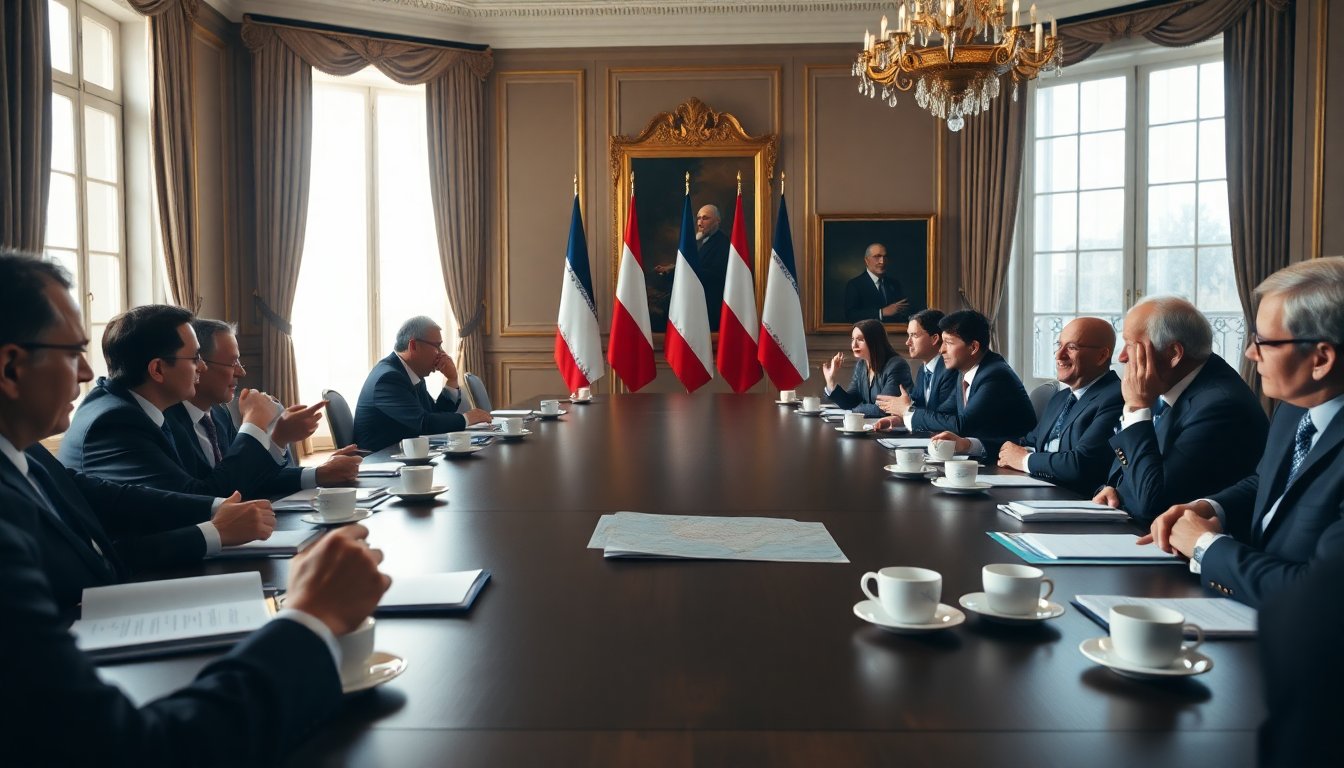Table of Contents
This week, Paris is poised to host Iran’s foreign minister, Abbas Araghchi, for discussions that may significantly impact the nuclear landscape and regional diplomacy. The French government has expressed optimism that these talks will revive Iran’s commitment to the International Atomic Energy Agency (IAEA) and the stalled nuclear agreement known as the Joint Comprehensive Plan of Action (JCPOA).
French Foreign Minister Jean-Noel Barrot highlighted the importance of this meeting, describing it as a vital opportunity to encourage Iran to fulfill its obligations to the IAEA. He emphasized the urgent need for a return to cooperation with the agency, which has faced obstacles in recent months.
Current state of negotiations
Despite diplomatic efforts, Iran has indicated a lack of urgency regarding the resumption of indirect negotiations with the United States, a process crucial for the future of its nuclear program. Earlier in November, Iranian officials stated they were “not in a hurry” to return to negotiations, even as international sanctions and economic pressures continue to mount.
Iran’s stance on negotiations
In a recent interview with Al Jazeera, Araghchi reiterated Iran’s readiness to engage in talks, provided the U.S. approaches discussions with a sense of equality and mutual respect. He criticized U.S. preconditions—such as demands for direct negotiations, a halt to uranium enrichment, and limits on missile capabilities—as unreasonable and unfair.
Araghchi’s comments reflect a broader sentiment within Iranian leadership, which perceives the current geopolitical climate as increasingly favorable. He pointed to Israeli Prime Minister Benjamin Netanyahu, whom he labeled a “war criminal,” suggesting that Netanyahu’s actions have inadvertently united the region against Israel rather than Iran.
Impact of recent conflicts
The backdrop of these discussions is marked by heightened tensions following recent military actions. A planned sixth round of talks between the U.S. and Iran collapsed in June after Israel conducted strikes on Iranian nuclear facilities. This conflict resulted in significant casualties and destruction, complicating prospects for diplomatic resolution.
Consequences of the U.S. withdrawal from the JCPOA
In 2018, former U.S. President Donald Trump unilaterally withdrew from the JCPOA, a landmark agreement that curtailed Iran’s nuclear ambitions in exchange for sanctions relief. Since then, Iran has gradually increased its nuclear activities, asserting that the U.S. withdrawal effectively nullified the agreement. Iranian officials maintain that their nuclear program is intended solely for peaceful purposes, amidst ongoing international scrutiny.
In September, the United Nations reimposed sanctions on Iran under the JCPOA’s snapback mechanism, further intensifying tensions and complicating the diplomatic landscape.
IAEA’s role in negotiations
Adding to these challenges, Iran recently suspended its cooperation with the IAEA following the agency’s resolution urging transparency regarding its enriched uranium stockpiles and access to nuclear sites. In response, Araghchi deemed the resolution harmful to the IAEA’s credibility and independence, claiming that Iran’s commitment to the agency’s oversight has been undermined.
The IAEA’s demands stem from ongoing concerns about Iran’s nuclear activities, particularly in light of military strikes targeting key sites. The agency’s director, Raphaël Grossi, has called for immediate access to these locations to evaluate the status of Iran’s uranium enrichment efforts.
French Foreign Minister Jean-Noel Barrot highlighted the importance of this meeting, describing it as a vital opportunity to encourage Iran to fulfill its obligations to the IAEA. He emphasized the urgent need for a return to cooperation with the agency, which has faced obstacles in recent months.0


